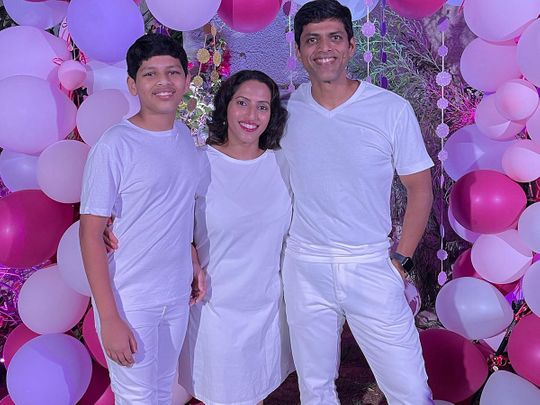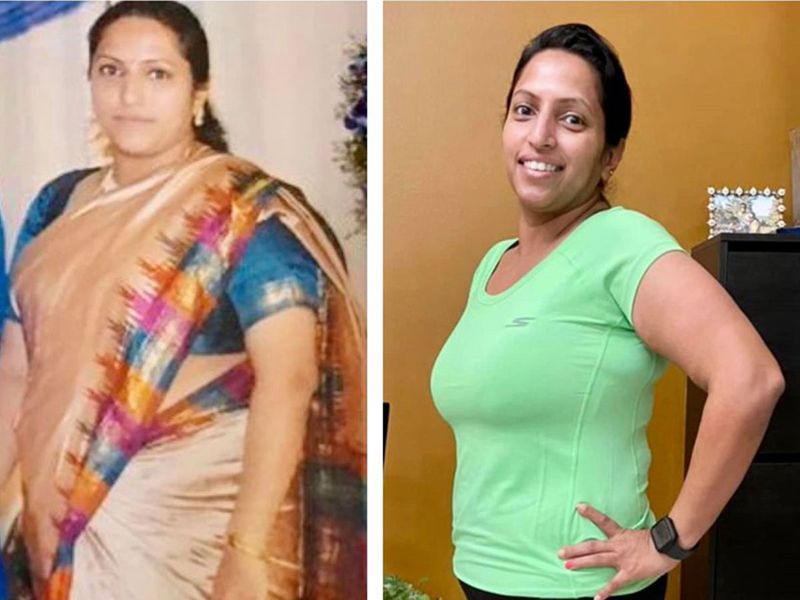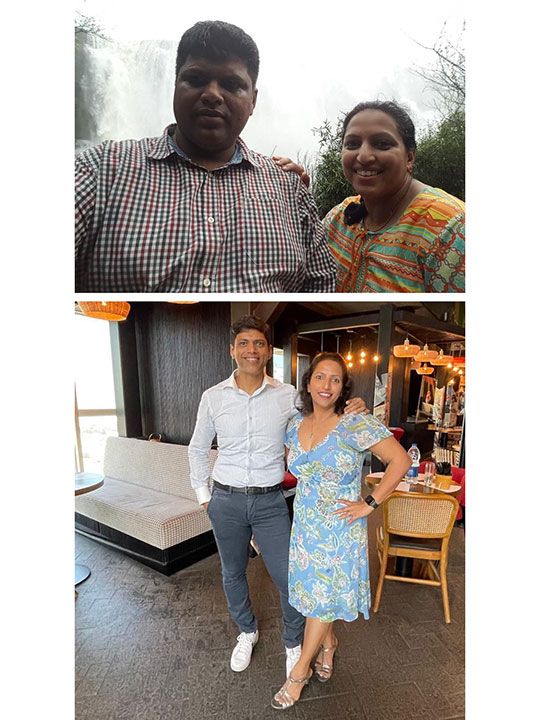
When Nini Thomas and Lijo Ittoop, Indian expats based in Dubai, decided to get fit, they didn’t realise how it would change the whole family’s – their son, Leon Varghese, included – relationship with food.
“Today,” laughs Ittoop in an interview with Gulf News, “My son can tell you all about macros.”
His journey, which saw him lose 53 kilos, had him on a protein-heavy diet. As the fat melted off his frame, she decided to join him on his path to fitness.
The 45-year-old five-foot Indian did some things differently. “I knew I wouldn’t be able to eat the non-vegetarian meals Lijo was eating, so I decided to do portion control instead,” she says. “I wanted to make this change as sustainable as possible.”
Thomas kept idlis (rice cakes), lentils and wheat as part of her programme. And she began to learn – from Ittoop – some easy-to-do weight exercises.
Lunch: one cup of rice with one cup of lentils or vegetables
Or one vegetable-stuffed chapatti.
Evening: Egg whites or boiled eggs.
Food cooked in coconut oil. Salads were allowed as were probiotics such as Greek yoghurt.
No food after 5.30pm.
By staying the course, Thomas went from 82 kilos in 2017 to 62 this year.

As young people, Thomas and Ittoop were active. However marriage and a country move made them a tad lethargic. Over the years, they admit, they put on a lot of weight. They knew they didn’t want to nourish an unhealthy relationship with food – and they definitely did not want to leave that legacy to their son. So the couple began to slowly tweak things around the house in 2017 after a trip to their home country.
Wondering how a parent’s relationship with food affect a child’s?
Children learn behaviours and pick up habits – including the way they eat – from their parents. “Eating patterns are influenced by developmental, family and environmental factors. Currently, on the one hand, obesity is a real problem among younger children and teenagers, on the other, there is growing concern about the rise in eating disorders. People face a challenge in approaching parenting around nutrition and eating behaviours, so that they are striking the right balance in giving their children the right advice and care. Each child is unique in their physical, behavioural and temperamental make-up. But they are also influenced by care-giver behaviours. Children will often model their behaviours around the behaviour of their mum and dad,” says Dr Waleed Ahmed, Consultant Psychiatrist and Eating Disorder Specialist at UAE-based Priory Group.
Author of a study titled ‘Pre-school children’s emotional eating partly shaped by innate food drive’, PhD student Rebecca Stone explains in a press release: "Our findings suggest that children who were more motivated to eat were more predisposed to associate food with emotions. Our research supports the idea that emotional eating is a learned behaviour which children often develop in pre-school years, but that some children are more vulnerable to developing emotional eating than others."
A press release by the UK-based Aston University states: “Although common amongst parents, the research also highlights that using food as a reward or visibly restricting the child's access to certain foods -- even in children as young as three -- can be problematic.”

Practical steps
In the Thomas- Ittoop home, junk food was banned in the house and every time they’d go grocery shopping, they’d read labels to check the contents – and calories – in their cart.
Watching his parents get fitter in front of his eyes seemed to have a big impact on their son. “He follows what we do in terms of eating fast food and stuff: sometimes, it’s okay, but not as a regular thing,” she explains.
The biggest difference in the familial relationship says Thomas, is how they spend time together. “Thanks to the energy we both have, we can go out and be active – together,” she says.
Tell us about your parenting journey by writing in to us at parenting@gulfnews.com








